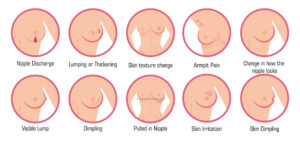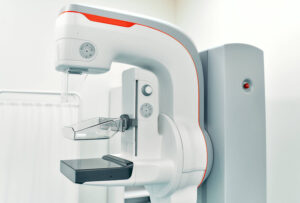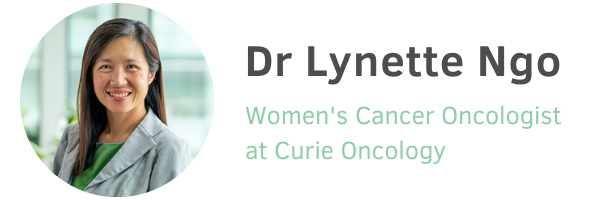What is breast cancer?
Breast cancer is the most commonly diagnosed cancer in Singaporean women. It is also the leading cause of cancer death in women globally However, as a non-gender specific cancer, it may also be diagnosed in men. Early diagnosis is possible, and key to surviving breast cancer. Treatment for breast cancer is typically multidisciplinary, involving surgery, radiation therapy, chemotherapy, endocrine therapy and possible immunotherapy.
What are the signs and symptoms of breast cancer?
Early-stage breast cancer is often asymptomatic. Thankfully, many countries have established screening programs which can pick up breast cancer early. It is still important to recognize the signs and symptoms of breast cancer, so you can seek medical help as soon as possible.
These include:
- Breast or armpit lump
- Skin changes around the breast – redness, thickening, dimpling or tenderness
- Changes in the size/shape of the nipple
- Rashes and scaly skin around/on nipple
- Nipple discharge – may be bloody
- Unexplained weight loss

What are the breast cancer risk factors?
- Age, especially over the age of 55
- Family history of breast cancer
- Extended use of hormone replacement therapy
- Alcohol and smoking
- Obesity
- Early menstruation or late menopause
- Having one’s first child at an older age
- Never having been pregnant
How can I prevent breast cancer?
One important step is to avoid breast cancer risk factors. You can do so by:
- Maintaining a healthy weight through physical activity, healthy diets
- Avoiding alcohol & smoking
- Avoiding hormone replacement therapy & birth control pills
Women with infants can also consider breastfeeding, which is protective against breast cancer.
Although prevention is better than cure, early diagnosis enables the highest chance of cure and survival. This is especially true for breast cancer, as asymptomatic early-stage cancers can be detected. Getting regular breast cancer screenings and doing consistent self-exams are essential. This is especially so for individuals with family histories of breast cancer.
How can I detect breast cancer early?
Breast self-examination
Who is it for: Ages 20 and up
When to do it: Once a month, one week after menses
What is it: Breast self-examination can be performed on oneself to identify breast lumps as early as possible. While lying down, gently feel your breast tissue for any lumps or hardened areas. Start from the nipple area, and move outward in a clockwise manner. Also feel your armpit area for any lumps or hardness.
Clinical breast examination
Who is it for: Ages 20 and up
When to do it: Requested during annual health checkups
What is it: Physical examination of the breast done by a medical professional.
Mammogram
Who is it for: Ages 40 and up
When to do it: Annually (40-49 years) or twice a year (50 years and up)
What is it: Mammogram is a specialized x-ray examination for the breasts, which detects abnormalities in breast tissue. During a mammogram, each breast, individually at a time, is gently compressed between two plates of the X-ray machine for a few seconds.

Breast Cancer Diagnosis and Treatment
If the aforementioned breast cancer screening tools detect the possibility of breast cancer, diagnosis can be made by employing the following techniques:
- Breast ultrasound
- Breast MRI
- Breast biopsy
Subsequently, treatment may involve surgery, radiation therapy, chemotherapy, and/or possibly immunotherapy. Specific treatment plans and regimes are highly dependent on the breast cancer subtypes, stages and patient’s wishes. In a particular type of early stage breast cancer, endocrine therapy is an adequate treatment.
Genetic Counselling for Breast Cancer
Certain gene mutations, such as the BRCA1 or BRCA2 gene, significantly increase the risk of breast cancer. Indications for carrying this gene mutation include:
- Being diagnosed with breast cancer before age 45
- Having male breast cancer
- Having a family history, with breast cancer and ovary cancer in young blood relatives (parents, siblings, children etc.)
- Having a relative with a known BRCA1 or BRCA2 mutation, or any of the above indications
If the above applies to you, you may wish to consider going for a BRCA gene test. It involves a simple blood test. Testing positive can further help you plan for enhanced breast screening, as well as warn other at-risk family members.
If you are looking for a breast cancer specialist in Singapore, you may wish to consult Dr Lynette Ngo.
Dr Lynette Ngo is a highly experienced medical oncologist specialising in women’s cancers. She began her oncology specialization in 2005 at the National Cancer Centre Singapore and is now part of the professional team of oncologists at Curie Oncology.
